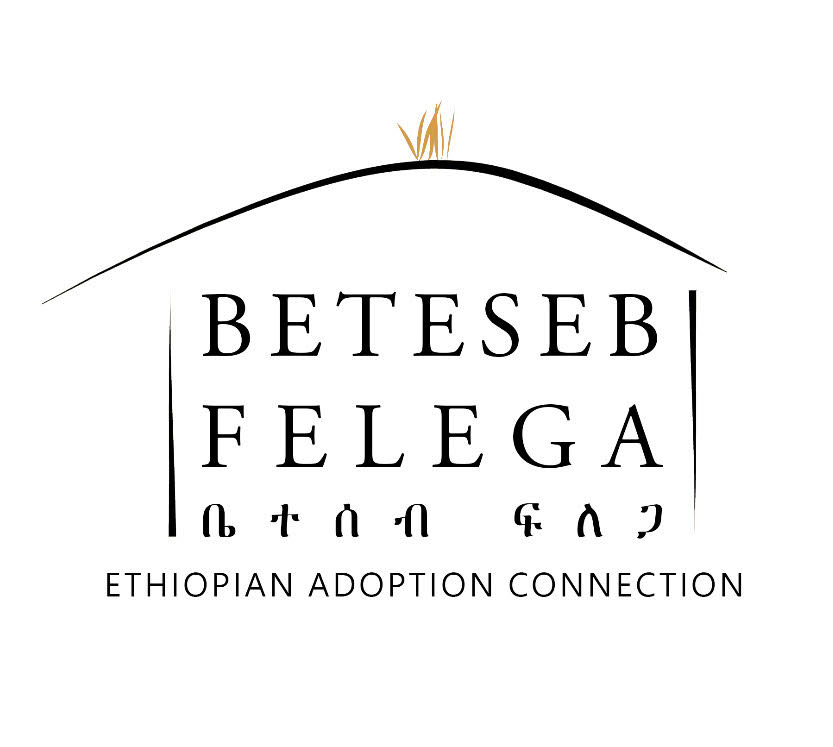Who Are Birth Mothers (and Fathers)?
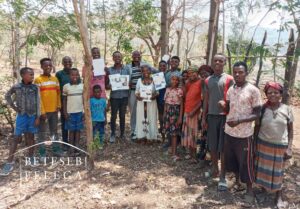 There are lots of names we use for the women who gave birth to our adopted children: birthmother, first mother, biological mother, your mother in Ethiopia, real mother, original mother, BM, tummy mommy, natural mother, Ethiopian mother. Sometimes it’s the birth mother, like we are talking about an inanimate object. If you like history, here are some articles about the origins of the most common terms for those mothers: Musings of the Lame, [Birth Mother] First Mother Forum and Origins Canada.
There are lots of names we use for the women who gave birth to our adopted children: birthmother, first mother, biological mother, your mother in Ethiopia, real mother, original mother, BM, tummy mommy, natural mother, Ethiopian mother. Sometimes it’s the birth mother, like we are talking about an inanimate object. If you like history, here are some articles about the origins of the most common terms for those mothers: Musings of the Lame, [Birth Mother] First Mother Forum and Origins Canada.
I don’t care for the term birthmother. It’s used on this site so that we can be found on search engines by those wanting information about finding family in Ethiopia. We use the terms natural, original, birth and first interchangeably. I personally prefer the term natural mother.
I prefer natural mother because it is closest to the truth. T-R-U-T-H. A natural mother is the mother a child is born to and should be, would be, and is raised by in the natural scheme of things, without the effects of challenging situations or excessive outside influence. Does it make adoptive parents UN-natural? I don’t think so. It’s not about us. Here is the definition of natural:
existing in or caused by nature; not made or caused by humankind
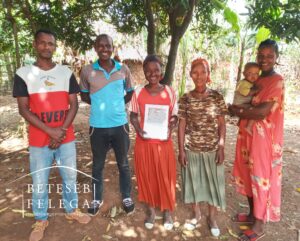 Natural means “caused by nature.” Adoption is caused by humans. A child doesn’t fly out of a woman’s womb and land of its own accord into the arms of an adoptive parent. Adoptions are arranged by people, and it happens when there is a tragedy around the birth of a child (lack of resources, societal pressure, etc, etc). In most cases, adoption is second best for a child. All things being equal, a child is best off with its own natural mother for both biological/physical and emotional/psychological reasons.
Natural means “caused by nature.” Adoption is caused by humans. A child doesn’t fly out of a woman’s womb and land of its own accord into the arms of an adoptive parent. Adoptions are arranged by people, and it happens when there is a tragedy around the birth of a child (lack of resources, societal pressure, etc, etc). In most cases, adoption is second best for a child. All things being equal, a child is best off with its own natural mother for both biological/physical and emotional/psychological reasons.
Please don’t start yelling at me in your mind here. I am not saying adoptive parents can’t love their child as much as they love a natural child or as much as a natural mother loves her child, or that adopted kids are all unhappy about being adopted. I love my kids who are adopted. I am simply saying that in the big picture, kids are best off with the moms who grew them. The first ones. The original ones. The ones who birthed them, naturally. It’s traumatic to leave your mother, and unnecessary adoption gives a child unnecessary trauma.
Another reason I prefer natural mother is that it reminds me that my child’s other mother is important. She wasn’t just a gestational pod. It is more respectful of her place in our child’s life.
Now back to the original topic. Who are natural mothers?
 Popular adoption rhetoric tells us they are women to whom we should give thanks. They gave us the most precious gift, after all. They are courageous, compassionate, brave, strong, noble, selfless, and full of a love we could never understand. They want a better life for their child. It’s fate. Or God’s will. The strong woman is heroic and will be able to move on with her life. Maybe she will go on to college and to have other children. Or maybe she will simply have enough money to feed her other children. Society romanticizes “birth” mothers.
Popular adoption rhetoric tells us they are women to whom we should give thanks. They gave us the most precious gift, after all. They are courageous, compassionate, brave, strong, noble, selfless, and full of a love we could never understand. They want a better life for their child. It’s fate. Or God’s will. The strong woman is heroic and will be able to move on with her life. Maybe she will go on to college and to have other children. Or maybe she will simply have enough money to feed her other children. Society romanticizes “birth” mothers.
Romanticizing mothers of another race and culture is especially appealing and easy to do, since we don’t always know a lot about them. We glorify her and her difficult decision. She is different from us; she has a special kind of love for her child. We could never give our child away. But she is strong. We can’t comprehend the enormity of the love behind her selfless action.
Let’s be honest here. We idealize natural parents for being strong enough to give their child away for a ‘better life,’ but do we respect them after the adoption is finalized and time has passed? Do we nurture our child’s relationship to their natural parents? Do we do it for the sake of the child if nothing else? Maybe we don’t think much about natural parents at all. A quote I will never forget from another adoptive parent goes like this, “I don’t mind keeping in touch, but I shouldn’t have to.” The rest of the sentiment is “…..after all, she gave her child away.”
I may be painting with a broad brush here. Adoptive parents come in all shapes and sizes,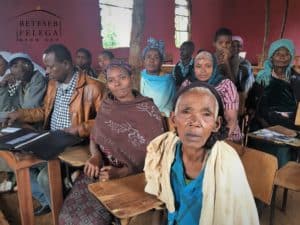 and things are not usually black and white. There is a good chance I am preaching to the choir since you are reading a blog on an adoption search registry. But I am working up to a point, and here it is: Adoptive parents don’t really see natural mothers as equal, worthy mothers. We often view them as undeserving because they gave their child away. But the honest to goodness truth is this: they are just like us, but with worse luck, less support, financial troubles, no access to abortion, and so on. On another day or another time, they are us and we are them.
and things are not usually black and white. There is a good chance I am preaching to the choir since you are reading a blog on an adoption search registry. But I am working up to a point, and here it is: Adoptive parents don’t really see natural mothers as equal, worthy mothers. We often view them as undeserving because they gave their child away. But the honest to goodness truth is this: they are just like us, but with worse luck, less support, financial troubles, no access to abortion, and so on. On another day or another time, they are us and we are them.
Adoptive parents, how much would you miss your child if you had to place them for adoption right now? A lot, right? Your child’s natural mother misses them just that much, or more. How hard would it be never heard a thing about how your child was doing? How hard would it be knowing they were living someplace else, enjoying life with another mother, or possibly being abused? I can’t even imagine it. Just thinking about it for a second is horrifying. Friends, THAT is how it is for our children’s natural mothers. Every. Single. Day. This is stuff people don’t recover from.
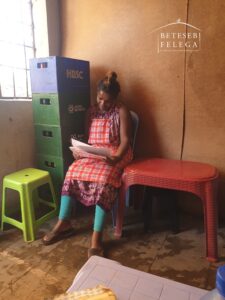 Since beginning Ethiopian Adoption Connection, I have heard story after story of anguished Ethiopian mothers who have no idea if their children are dead or alive after being adopted. They don’t forget and they don’t get over it.
Since beginning Ethiopian Adoption Connection, I have heard story after story of anguished Ethiopian mothers who have no idea if their children are dead or alive after being adopted. They don’t forget and they don’t get over it.
I know all this may sound harsh to many adoptive parents. We adopted, we’re the good guys! But I want all of us to think about this when we hear ourselves saying things like, “My child isn’t ready to meet her birthmother.” Who is really the one who is not ready, and how hard would it be to send a photo and some school work once a year? At the very least, find it in your heart to keep the communication open for your child so that he or she can take over when they are independent. Think about it.
For further reading on natural mothers, reasons for surrendering a child to adoption, and how they fare afterwards:
BIRTH MOTHERS’ EXPERIENCE AFTER RELINQUISHMENT by Kalkidan Alelign
Depression Problems and Coping Mechanisms; The case of Ethiopian birth parents who relinquished their children for inter-country adoption by Wondwossen Teshome Mekuria
The Girls Who Went Away: The Hidden History of Women Who Surrendered Children for Adoption in the Decades Before Roe v. Wade by Anne Fessler.
[Birth Mother] First Mother Forum by Lorraine Dusky and Jane
International Adoption from the Circumstances, Perspectives, and Experience of Birth Mothers in Wonji Shoa and Addis Ababa by Rebecca Demissie
